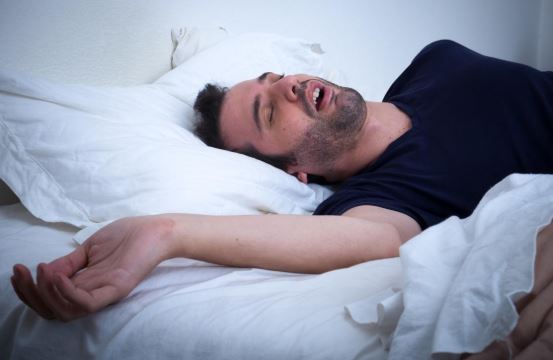Hot Stories
Recent Stories
What To Do When You Can't sleep At Night
Posted by George on Sat 04th May, 2019 - tori.ngToo little sleep may cause a number of problems, including memory loss, a feeling of depression, weakening of the immune system, pain and even sickness.

File Photo
The amount of sleep a person needs depends on many factors, including age. In general, adults need to sleep for about seven to nine hours every night, according to wedmd.com.
However, experts say that if you feel drowsy during the day, even during boring activities, you haven’t had enough sleep.
Sleep Debt:
The amount of sleep a person needs also increases if they have been deprived of sleep in previous days. Getting too little sleep creates a “sleep debt”, which is much like being overdrawn at a bank. Eventually, your body will demand that the debt be repaid.
Consequences of Too Little Sleep:
Too little sleep may cause a number of problems, including memory loss, a feeling of depression, weakening of the immune system, pain and even sickness.
Many studies make it clear that sleep deprivation is dangerous. Sleep-deprived people who are tested by using a driving simulator or by performing a hand-eye coordination task perform as badly as or worse than those who are intoxicated.
Sleep deprivation also magnifies the effect of alcohol on the body, so a fatigued person who drinks will become much more impaired than someone who is well rested.
In fact, you should be very careful about driving, if you don’t get enough sleep.
The National Sleep Foundation, a US nonprofit organisation that promotes public understanding of sleep and sleep disorders, says you are probably too drowsy to drive safely if you have trouble keeping your eyes focused, can’t stop yawning, can’t remember driving the last few miles, have trouble holding your head up, and keep drifting in and out of lanes.
However, if you are the type that has difficulties sleeping at night, there are some things you can do to improve your chances of getting a good night’s rest.
Think positive
Ridding your mind of negative thoughts calms you down and makes you more likely to fall asleep.
Pick one thing to focus on
Focusing on something specific could be just what you need to get sleepy.
Pretend to be tired
Concentrate on the kinds of things you would feel if you were tired, like drooping eyes, the room darkening, or the sensation of sinking into your bed. Before you know it, you just might experience them!
Adjust your temperature
Even if you can’t completely control the heating and cooling system in your home, you can control your body. Put the fan closer to your face when you are too hot or bundle up when you are too cold.
Read, or watch a movie
Try reading, but not on your laptop or phone, but with a paper book. Dim the lights in your room (or use a lamp) so you can see comfortably. You can also watch a good movie.
Listen to music
Don’t go for a loud, blasting dancehall beat. Some simple, acoustic, minimal percussion music might be perfect for getting your eyes to droop.
Stretch
Yes, you can try this sleep hack without getting out of bed. Put your legs up against the wall to calm your central nervous system. You can also do some light leg and arm movements and exercises on your back to release any excess tension.
Relax from head to toe
Concentrate on each muscle, starting from your toes.
Make a journal
If your mind is racing, grab a notebook and jot down every thought you have. Just get everything out until you are out of ideas and start to tire.
Drink something hot
Making yourself a glass of hot milk with honey or decaffeinated tea could warm your body up for rest.
Stick your feet out
Research says that keeping your toes cool makes you more likely to fall asleep.
Cover your eyes
Even if your room is dark, grab a cloth and cover your eyes so that all you can see is sleep!
Top Stories
Popular Stories
Stories from this Category
Recent Stories






















































